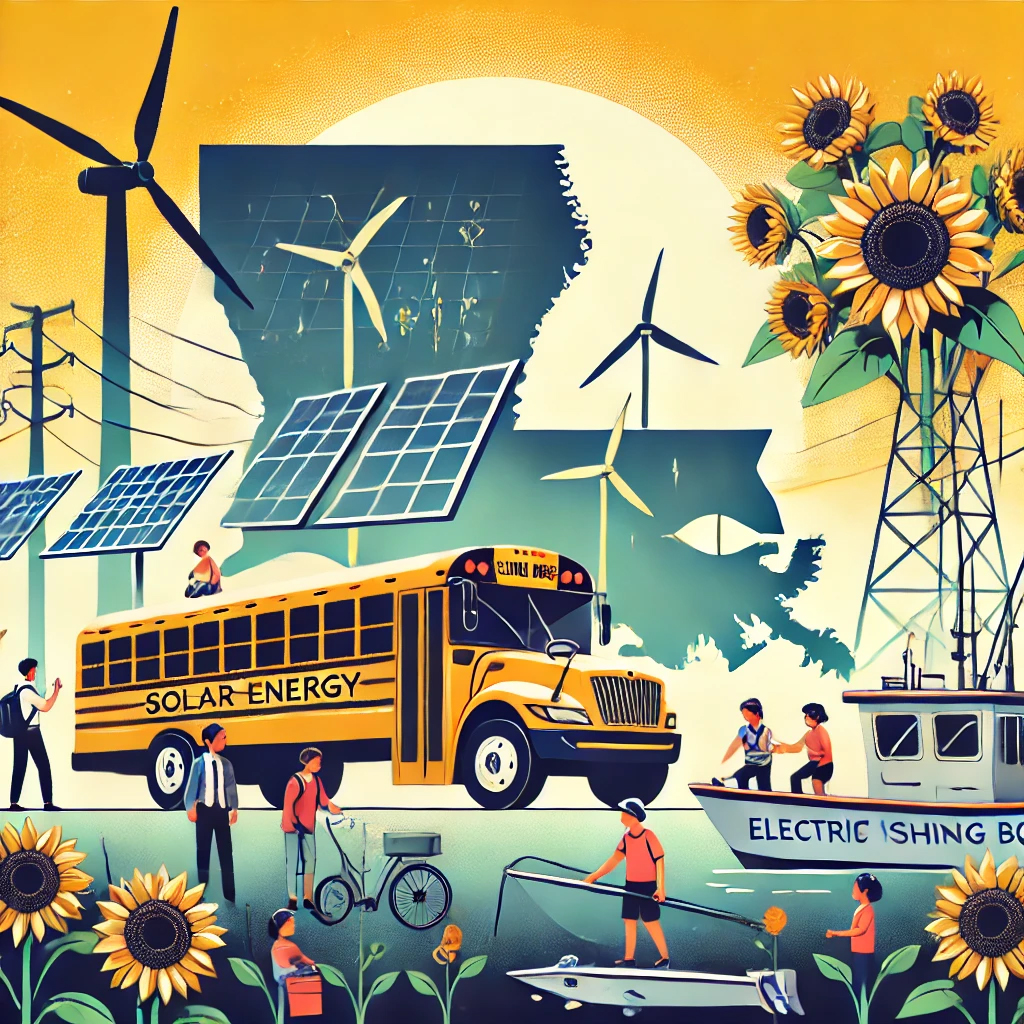
In a modest office on Veterans Boulevard in Metairie, Louisiana, a small team is orchestrating a revolution. The Louisiana Future Projects Corporation (LFPC), co-founded by Mel Leveque and Bradley Bartz, is a beacon of green hope in a region often overshadowed by its dependence on traditional energy sources. Their mission is simple yet ambitious: to leverage renewable energy and government incentives to foster a sustainable future for Louisiana.
The story of LFPC begins with two visionary leaders. Mel Leveque, a local entrepreneur with deep roots in the community, and Bradley Bartz, an innovative mind with a knack for seeing beyond the horizon, joined forces to address some of the state's most pressing environmental challenges. Their partnership has given birth to a series of transformative projects aimed at reducing greenhouse gas emissions, promoting sustainability, and revitalizing communities.
Schools First: Pioneering Solar and EV Bus Retrofits
LFPC’s flagship initiative, Schools First, is as innovative as it is impactful. The project involves installing solar panels on school buildings and retrofitting school buses with electric vehicle (EV) technology. This not only reduces carbon emissions but also slashes operational costs for schools, redirecting savings to educational resources.
“Schools are the heart of our communities,” Leveque explains. “By focusing our efforts here, we’re not only fostering a cleaner environment but also investing in the future of our children.” The sight of solar-powered school buses shuttling students to and from class has become a symbol of progress, with LFPC leading the charge.
Fisheries: A Sustainable Future on the Water
The next wave of LFPC’s efforts crashes onto Louisiana’s storied fishing industry. The state’s fishing fleet, long a backbone of its economy, is now poised to become a model of sustainability. LFPC’s plan to repower fishing vessels with electric motors, supported by onshore solar and battery arrays, promises to cut emissions dramatically while reducing fuel costs for fishers.
This initiative has been met with enthusiasm and cautious optimism. “The fishing community is integral to our culture and economy,” says Bartz. “By introducing electric vessels, we’re preserving this way of life while ensuring it’s sustainable for future generations.”
Brownfields to Greenfields: Turning Contaminated Sites into Environmental Profit Centers
Perhaps the most ambitious of LFPC’s projects is the transformation of brownfields into thriving greenfields. These once-contaminated sites are being reborn as environmental profit centers, with fields of sunflowers, solar panels, and innovative agricultural practices. Sunflowers, known for their phytoremediation properties, are central to this vision, symbolizing renewal and hope.
The air buzzes with optimism as community members and LFPC representatives plant sunflower seeds. “It’s about turning blight into beauty,” Leveque remarks. “These projects are not just about cleaning up the environment; they’re about revitalizing communities and creating economic opportunities.”
Leveraging Government Incentives
Central to LFPC’s strategy is the adept use of government incentives, particularly those provided by the Inflation Reduction Act (IRA). The IRA offers significant tax credits and grants for renewable energy projects, which LFPC has skillfully harnessed to fund its initiatives. By doing so, they have ensured that their projects are not only environmentally sustainable but also financially viable.
A Model for the Future
LFPC’s work is a testament to what can be achieved when visionary leadership meets community engagement and innovative thinking. As Louisiana navigates the complexities of climate change and economic challenges, LFPC stands as a model for how local initiatives can drive profound, positive change.
In the words of Bartz, “We’re just getting started. The potential for renewable energy to transform our state is limitless, and we’re committed to leading the way.”
As the sun sets over the fields of blooming sunflowers and the quiet hum of electric school buses and fishing boats becomes the norm, it’s clear that LFPC is not just a fleeting initiative but a lasting legacy. In the heart of Louisiana, a green revolution is taking root, and its impact will be felt for generations to come.